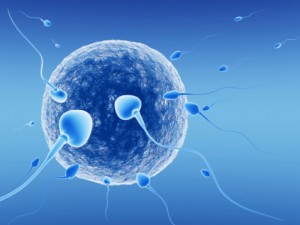In the most comprehensive study of its kind, researchers have compared the risks of major birth defects to the different types of assisted reproductive therapies used, as well as for those resulting from frozen embryos the fertility drugs.
 Spero News is reporting that the new study, conducted by researchers at the University of Adelaide, compared the risks of major birth defects for the use of IVF (in vitro fertilization), ICSI (intracytoplasmic sperm injection), ovulation induction, as well as after fresh and frozen embryo transfer.
Spero News is reporting that the new study, conducted by researchers at the University of Adelaide, compared the risks of major birth defects for the use of IVF (in vitro fertilization), ICSI (intracytoplasmic sperm injection), ovulation induction, as well as after fresh and frozen embryo transfer.
Researchers relied on the records of more than 300,000 babies who were conceived naturally and 6,163 conceived with assisted reproductive technology (ART), as well as 18,000 birth defects from 1986 through 2002. Birth defects included limb abnormalities, defects of the heart, spine or urinary tract, cleft palate and any other defect that required treatment or were disfiguring.
“While assisted reproductive technologies are associated with an increased risk of major birth defects overall, we found significant differences in risk between available treatments,” says the lead author of the study, Associate Professor Michael Davies from the University of Adelaide’s Robinson Institute and School of Pediatrics and Reproductive Health.
“The unadjusted risk of any birth defect in pregnancies involving assisted conception was 8.3 per cent, compared with 5.8 per cent for pregnancies not involving assisted conception,” Professor Davies said.
The risk of birth defects for IVF was 7.2 per cent; and the rate for ICSI was higher at 9.9 per cent. In ICSI, a single sperm is injected into an egg, a procedure done mostly in cases involving male infertility.
A history of infertility, either with or without assisted conception, was also significantly associated with birth defects, he said. “While factors associated with the causes of infertility explained the excess risk associated with IVF, the increased risk for a number of other treatments could not readily be explained by patient factors.”
Of particular concern was the tripling of risk in women using the fertility drug, clomiphene citrate, which is used to stimulate ovulation. This is especially alarming because of the easy availability of the drug outside a supervised clinical setting.
“While confined to a small group in our study, this is of particular concern as clomiphene citrate is now very widely available at low cost, and may easily be used contrary to manufacturers’ very specific instructions to avoid use if pregnant, as it may cause fetal malformations. This aspect of the study will need additional confirmation from future research,” Associate Professor Davies says.
The use of frozen embryos was also studied and found to be associated with a substantially reduced risk of birth defects, particularly for those using ICSI.
“This may be due to developmentally compromised embryos failing to survive the freeze/thaw process,” Professor Davies said.
The results of the research were published in the current issue of the New England Journal of Medicine and presented at the World Congress on Building Consensus in Gynecology, Infertility and Perinatology in Barcelona, Spain.
© All Rights Reserved, Living His Life Abundantly®/Women of Grace® http://www.womenofgrace.com









